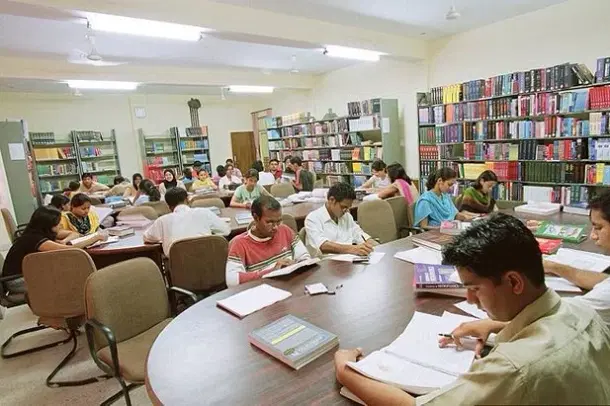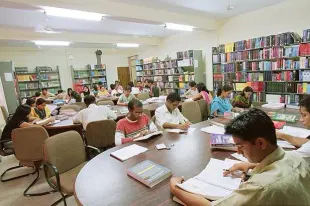Ideas
How Do Educational Institutions Shape Civic Responsibility And Social Consciousness?
Himanshu Rai and Rouhin Deb
Nov 29, 2024, 10:49 PM | Updated 10:49 PM IST
Save & read from anywhere!
Bookmark stories for easy access on any device or the Swarajya app.


Educational institutions have long been recognised as foundational pillars in the development of societies and nations. Beyond academic learning, these institutions play a pivotal role in shaping social consciousness, fostering civic responsibility, and encouraging collective action.
The recent tragic rape and murder of a trainee doctor at Kolkata’s RG Kar Medical College and Hospital serves as a reminder of how institutions can become focal points for social movements, especially when students stand at the forefront of demanding justice.
While this case exemplifies student-led activism, it also prompts broader reflection on the role of educational institutions in shaping responses to systemic inequalities such as gender violence and institutional negligence.
Historically, educational institutions have been the breeding grounds for transformative civic mobilizations. Whether in the anti-apartheid struggle in South Africa, the Civil Rights Movement in the USA, or the Indian independence movement, students have consistently challenged the rigid structures of institutional power.
The Erosion of Institutional Legitimacy
One of the most critical ways in which educational institutions contribute to social awareness is through the cultivation of critical thinking and engagement. While formal curricula impart essential knowledge, informal discussions and peer interactions deepen students’ understanding of social issues.
A 2019 study by the Centre for the Study of Developing Societies revealed that 68 per cent of Indian university students regularly engage in conversations about politics and social concerns. This underscores the role academic settings play in encouraging students to critically engage with the socio-political realities around them.
At the heart of this dynamic is the extent to which institutions either enable or constrain student activism. The degree to which educational institutions facilitate open dialogue, provide organisational resources, and protect students’ rights to free speech significantly influences how they contribute to civic consciousness.
In the case of RG Kar Medical College, student protests demonstrated the dual role of institutions: as environments that nurture awareness and as entities that must also be held accountable.
A crucial aspect of this relationship is trust. Trust between students and institutional authorities creates a platform for transparent deliberations. When students feel their concerns are taken seriously, they are more likely to engage constructively in addressing issues.
Conversely, when trust erodes—often due to perceived indifference from the administration—students may resort to protests to voice their frustrations and demand accountability. This was evident in the aftermath of the RG Kar incident, where students’ protests were a direct response to the lack of timely and effective action from the college authorities.
Furthermore, structural inequalities within educational institutions play a significant role in shaping student activism. As Philip G. Altbach, a keen observer of Indian student politics, notes, the norms and values prevalent in broader society are often reflected within educational institutions. Factors such as caste, class, and gender intersect within academic settings, leading to disparities in how different groups experience the institution’s culture and support systems.
The Impact of External Politicisation
The influence of external politicisation cannot be understated. The relationship between state-run educational institutions and the government is often fraught with tension, especially when political interests affect institutional governance.
In the case of RG Kar Medical College, the dynamics between the institution and the ruling Trinamool Congress (TMC) government highlighted how politics and educational administration can become intertwined.
Since state-run institutions operate under direct government oversight, internal issues—such as infrastructure deficiencies—quickly become politically charged. The state’s handling (or mishandling) of these issues is often viewed as a reflection of its governance. In this context, the TMC government’s slow response to student grievances exposed a critical issue: the politicisation of administrative matters.
The government’s reluctance to intervene swiftly exacerbated the protests, as students began to see their struggle as not just an institutional failure but also a symptom of larger governance shortcomings. This blurring of the lines between educational concerns and state politics is particularly evident in state-run institutions, where political leaders hold significant sway over appointments, funding, and policy decisions.
Engaging Students as Key Stakeholders
Addressing the dynamics between educational institutions and students requires a multifaceted approach. First and foremost, institutional accountability must be prioritised. Educational institutions should be held to a higher standard, not only as academic centers but also as pillars of social equity and justice.
When incidents like the RG Kar tragedy occur, institutions must act transparently to restore trust and demonstrate their commitment to student safety and welfare. Trust, once broken, can lead to deep-seated discontent, driving students to the streets rather than the negotiating table.
Moreover, students must be recognised as legitimate stakeholders in shaping institutional governance. Rather than viewing student activism as a threat, administrations should engage with it as a natural and necessary form of civic engagement.
Finally, the relationship between state-run institutions and the government must be reformed. Political interference in academic settings undermines both educational aspirations and the institutional autonomy needed for a healthy academic environment. Governments should refrain from using educational institutions as extensions of their political apparatus and work toward ensuring that these spaces remain free from overt politicization.
Himanshu Rai is the Director, IIM Indore and Rouhin Deb is the Chief Economist, Chief Minister’s Secretariat, Assam.





